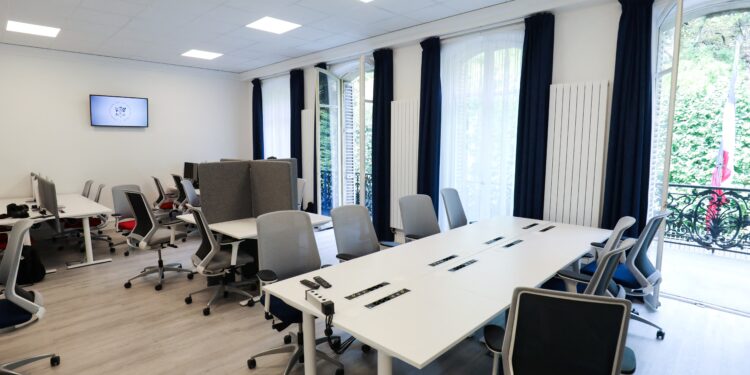Brussels – The conversion of office space due to smart working could create about 60,000 new apartments in Germany, according to a study by the ifo Institute in collaboration with the German real estate consulting firm Colliers.
Another Ifo Institute study highlighted Germany’s pioneering role in replacing traditional work with agile work and, therefore, a need to rethink the office concept, with a gradual reduction in the physical space available to companies.
The ifo Institute and Colliers analyzed the impact of “smart” business choices. The outcome was that it would be possible to create about 60,000 apartments for 102,000 people in the seven largest German cities (Berlin, Hamburg, Munich, Cologne, Frankfurt, Stuttgart, and Düsseldorf, where Colliers operates). Simon Krause, a researcher at Ifo and a co-author of the report, dampened the enthusiasm, however: “Only a small proportion of the possible conversions is economically feasible.” he says.
The study makes some
assumptions. The starting point is that just under six million square meters are available for conversion, even considering the decline in demand (adding the approximately 2.3 million currently available and the 3.5 estimated to result from the “smart: change). Assuming a 20 percent loss of usable floor area in the transition from office to residential, an average apartment of 77 square meters, and an average household size of 1.7 people, this could create 60,000 apartments for 102,000 people.
The reality is that “due to the limited economic feasibility of conversions to apartments, creative concepts for subsequent use are required,” said the other study co-author, Andreas Trumpp, from Colliers. To have successful conversions, one must think big, including working on neighborhoods “to meet residential, commercial, leisure, and other urban needs,” Trumpp added.
Smart working is making people rethink the physical office space. The percentage of home-based workers in Germany has been stable for nearly two years, and the study estimates a 12 percent decrease in demand for office space by 2030. “Working from home will further increase the vacancy rate and the risk of office buildings without subsequent occupation,” Krause said.
Conversion for residential purposes is a promising option, but it will also be necessary to rethink offices in an economic, creative, and rational way. “The future of office buildings lies in flexibility and adaptability to the changing needs of society and the economy,” according to the study. Through prudent and strategic planning, transforming of “office vacancies” can contribute “to meeting urban needs and thus to sustainable urban development.”
English version by the Translation Service of Withub






